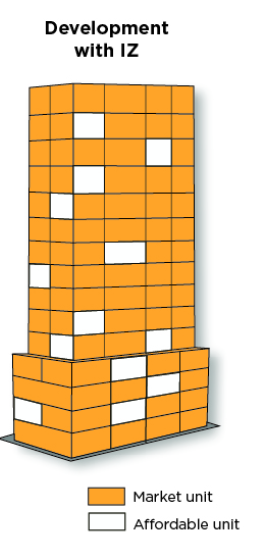 By Mike Collins-Williams
By Mike Collins-Williams
January 13th, 2022
BURLINGTON, ON
The West End Home Builders’ Association is very pleased to participate in the City’s Housing Strategy Working Group. I’ve been very encouraged by the discussions from this diverse group who bring different life and professional experience to the table.
I want to open my comments by acknowledging the housing challenges we face not just in Burlington, but across this entire metropolitan region that is the fastest growing area in North America. In fact – numbers were just released that Canada grew by over 400,000 people in 2021 and for the first time in Canadian history – Canada’s population growth exceeded that of the United States – a country 9 times larger.
Understandably, most of the new growth is coming to Vancouver and the GTA – and we here in Burlington are experiencing the pressures of this growth and the escalating cost of housing due to the inability of housing supply to keep up with demand.
 There is no silver bullet solution to the housing crisis. We all need to work together – The private sector, the non-profit sector and all three levels of government. I strongly believe that this is the most important opportunity to develop the effective partnerships we all need to successfully address the housing crisis.
There is no silver bullet solution to the housing crisis. We all need to work together – The private sector, the non-profit sector and all three levels of government. I strongly believe that this is the most important opportunity to develop the effective partnerships we all need to successfully address the housing crisis.
I am happy to be here today to talk about one planning tool that is available to us – and that is inclusionary zoning.
I’m happy to see the time and energy Burlington is investing to analyze housing options intended to promote much needed public policy adjustments through the Housing Strategy. I am here to say to you today as the CEO of the West End Home Builders’ Association that we support the development of mixed income communities, and we are supportive of the use of inclusionary zoning as a planning tool – but we need to make sure it’s done right and within the context of a comprehensive and achievable housing strategy.
There are over 800 examples of inclusionary zoning across North America – some jurisdictions have well designed policy frameworks that support the construction of new affordable units without placing the burden of costs onto the other buyers or renters through cross subsidization… while other jurisdiction have models that don’t effectively generate much of any affordable housing, and others thrust the entire cost of the program onto other purchasers
If Burlington’s Housing Strategy cares about providing housing in Burlington for all income levels, then we as a society have an undeniable role to play. We must collectively pay the costs of constructing affordable or subsidized housing options. This burden should not just be on new home buyers, but on everyone from a shared tax pool which can support the costs of an IZ program.
New first-time buyers of entry level condos near Burlington’s 3 GO Stations and renters absolutely should not be burdened with the entire cost of building affordable housing. Prices are already too high and asking first time home buyers to cover the cost of an affordable housing program is unequitable, unfair and socially irresponsible.
Our members have the knowledge, experience and capacity to build more housing – especially more transit-oriented and energy efficient multi-unit mid-and-high rise buildings in mixed income communities
surrounding Burlington’s GO Stations. This is a huge opportunity for the City of Burlington to partner with the private sector to provide affordable housing units that would otherwise not be built.
Here are a few suggestions for Council to consider as it researches and develops policy options:
Consider early in the policy development stage who will own, manage and maintain affordable units and administer an inclusionary zoning program. We recognize and appreciate that this was identified in Appendix A of the staff report.
As we are still in the earlier stages – we want to ensure that we don’t end up with an overly complex program with overwhelming administrative challenges. This is a particularly important consideration for the City of Burlington due to its size and the quantum of new affordable units that can reasonably be achieved.
I also want to highlight what type of housing inclusionary zoning can effectively deliver – I like to use the British term “workforce housing” – inclusionary zoning is not a silver bullet that can deliver either deeply affordable housing or supportive housing where additional services and financial support are required.
What inclusionary zoning can deliver, if designed properly, is key “workforce housing” within an affordability band just below where the market is today to provide a helping hand to folks that are struggling to get into the market.
As part of the Municipal Comprehensive Review currently underway and to assist the City’s efforts to satisfy its future growth requirements, the city also needs to consider and facilitate and environment that enables the City of Burlington to maximize the growth potential of its 3 PMTSAs.
Given the limited amount of MTSAs in the City, and the amount of growth likely to be allocated to the City, it is especially important to ensure that IZ units are “additive” to the supply that the market would provide in the absence of IZ.
Therefore – we need to ensure that an emphasis is placed on economic viability for those transit station areas under consideration in Burlington.
A poorly designed program won’t actually yield any affordable units and will increase the cost of entry level market-housing for first time buyers and renters.
A poorly designed program also runs the risk of causing Burlington to miss those targets and displace projected growth to other communities in other Burlington neighbourhoods or to adjacent communities that do not have the infrastructure necessary to support growth.
Any inclusionary zoning policy must be built as a true partnership and paired with offsets necessary to ensure the success of the program.
The industry is not seeking direct subsidies – but rather an intuitive partnership where the City of Burlington is not levying tens of thousands of dollars of costs through development charges, cash-in-lieu of parkland fees, underground parking requirements etc – on units that we are trying to ensure are affordable.
We need a partner to make this work – and we believe that with your help we can make this work to build more inclusive communities.
We are also hopeful that we can work together with the City of Burlington to leverage and potentially stack benefits through any provincial programs or through funds or low-interest CMHC loans that may be available from the Federal Government through the National Housing Strategy.
The more coordinated we are in our approach – the more benefits we can deliver.
I encourage Council members to review the case studies that are being generated. We should all have a good understanding of unsuccessful inclusionary zoning programs to understand the pitfalls of poorly designed programs.
We also need to pay attention to the case studies for comparable cities – Burlington is not Toronto, New York or San Francisco – we are not producing tens of thousands of units per year – nor do we have State programs like the 421A in New York where property taxes are waived entirely in rental buildings with affordable units or National programs like to Low Income Housing Tax Credit offered in the States – there are more senior level of government programs down there that can be combined into Inclusionary Zoning programs to support economic viability… I hope that is acknowledged as we move forward in Burlington to make sure we are working together to design an effective program.
I want to close by saying that in 2021, WE HBA has been pleased to see renewed collaboration between ourselves and the City. I sincerely appreciate my appointment to Burlington’s Housing Strategy Task Force and believe we are making positive progress. I am hopeful to continue in that positive direction and spirit of collaboration in any future work on Inclusionary Zoning.
 Mike Collins-Williams is the CEO of West End Home Builders Association (WEHBA) . He is a Registered Professional Planner and is a member of the Burlington’s Housing Strategy Task Force
Mike Collins-Williams is the CEO of West End Home Builders Association (WEHBA) . He is a Registered Professional Planner and is a member of the Burlington’s Housing Strategy Task Force
WEHBA is the organization that represents the interests of the construction and developer interests.
Related news story:




















